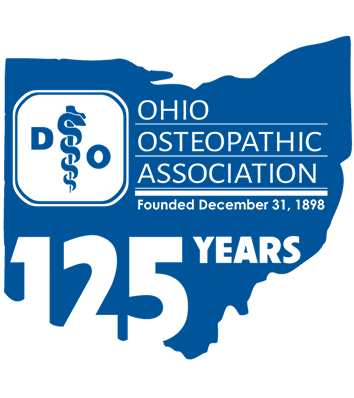Legislators Set to Return to Columbus in Mid-January
(January 3, 2016) The Ohio General Assembly adjourned, December 8, and legislators won’t return to the Statehouse until January 20, 2016.
Since this year is a major election year, the legislative process will be interrupted by primaries in the Spring and the Presidential election in the Fall, followed by a "lame duck" session in December. The status of important health care legislation, as of December 2015, is listed below:
- HB 116 (Brown) – This bill authorizes a medication synchronization process so pharmacists can dispense multiple drugs to patients with chronic diseases on the same date each month. The bill passed the House and has been assigned to the Senate Medicaid Committee.
- HB 124 (Johnson) – This bill authorizes a physician, advanced practice registered nurse, or physician assistant to prescribe or personally furnish a drug for up to two sexual partners of a patient diagnosed with chlamydia, gonorrhea, or trichomoniasis, without examining the sexual partner. The bill was signed by the Governor.
- HB 169 (Brown/Reineke) –OOA opposes this bill, which allows physical therapists to “diagnose” and order tests. This bill is in the House Commerce and Labor Committee. OOA remains involved in interested party meetings. The bill was delayed from vote and more meetings are expected after the first of the year.
- HB 157 (Butler) – This complicated bill deals with an overhaul of the medical tort system, an HSA program for Ohio Medicaid patients, changes in emergency department care, and cost transparency among other things. Rep. Butler, the sponsor, continues to seek input from interested stakeholders.
- HB 188 (Burke) – OOA supported this bill, which allows pharmacists to do medication management through consulting agreements with physicians. OOA supported the final version because it preserves the physician-led, team approach to health care and improves patient access and quality of care. The bill passed the Senate with amendments and the House concurred with those changes; HB 188 has been signed by the Governor.
- HB 216 (Pelanda) – This bill would allow APNs to practice independently without a collaborating physician. The OOA is part of a coalition of physician organizations strongly opposed to this bill. A substitute version was released by the sponsor and a robust, interested party meeting of lobbyists-only was held, Dec. 9. The OOA supported an OOA grant application from the AMA’s Scope of Practice Commission to hire legislative and public relations consultants to help with the physician campaign.
- HB 352 (Johnson) This bill designates April 2016 as Osteopathic Awareness Month. The bill unanimously passed the House of Representatives and is awaiting committee assignment in the Senate. Activities are being planned at the statehouse next April in conjunction with the Ohio Osteopathic Symposium to commemorate the 40th anniversary of the establishment of OU-HCOM.
- SB 33 (Tavares) -- This bill would require CME for cultural competency. OOA opposes mandatory, subject-specific CME, but OOA, OU-HCOM, and CORE are working with Sen. Tavares to find ways to strengthen cultural competency education in osteopathic UME, GME and during student rotations.
- SB 129 (Gardner and Cafaro) – This bill establishes important new requirements and uniform procedures for how health plans handle prior authorizations. The Senate passed a substitute version, which will now go to the House of Representatives.
- SB 165 (Lehner) – This bill replaces DNR orders with Medical Orders for Life Sustaining Treatment (MOLST). The OOA, as a member of the Honoring Wishes Task Force, has strongly supported this legislation with Cleanne Cass, DO, serving as our main advocate. The Senate Civil Justice Committee has held three hearing on the legislation. A substitute bill has been introduced and action by the Senate is expected after the first of the Year. Ohio Right to Life is now “neutral” on the bill.
- SB 243 (Lehner) – This bill addresses step therapy procedures by requiring health plans and the Department of Medicaid to follow mandated step therapy protocols that reduce red tape. I have been working with advocates to get Rep. Terry Johnson, DO, to sponsor the companion bill in the House.



